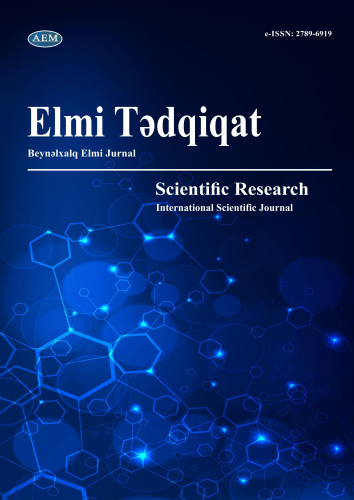DOI: https://doi.org/10.36719/2789-6919/13/13-15
Sevinc Məhərrəm qızı Hacıyeva
Azərbaycan Dövlət İqtisad Universiteti
https://orcid.org/0000-0003-4966-8506
KLASSİK LÜĞƏT ƏNƏNƏSİNİN MƏDƏNİYYƏTİN QORUNUB SAXLANILMASINDA VƏ ÖTÜRÜLMƏSİNDƏ ROLU VƏ YERİ
Xülasə
Dilin semantik qatının əsas vahidi olan söz təkcə fikrin ifadəsi və ictimailəşmə elementi deyil, həm də mədəni ünsürdür. Müasir dünya siyasətində qlobal, regional və yerli problemlərin həllinə, qloballaşma və mədəni inteqrasiyaya yeni yanaşma mövcuddur. Bu mənada leksikoqrafiya xalqlar arasında münasibətlərin inkişafında mühüm rol oynayır. Xüsusən xalq arasında dialoqun formalaşmasında, tərcümənin inkişafında mühüm rolu olan bu dil hissəsinin tədqiqi Azərbaycan dilçiliyinin qarşısında duran aktual problemlərdəndir.
Lakin leksikoqrafiyanın funksional rolu bununla bitmir. Əvvəla, lüğət ənənəsinin əsasını təşkil edən söz yaradıcılığı mədəniyyətin formalaşması və ötürülməsi ilə ayrılmaz şəkildə bağlıdır. Digər tərəfdən eyni genetik dil bazasına sahib olan xalqların arxaik dil yaddaşının leksikologiya konteksindən işlənilməsi bu xalqlar arasında mədəni əlaqələrin yaradılması üçün mühüm əhəmiyyət kəsb edir.
Açar sözlər: lüğət, klassik, mədəniyyət, qloballaşma, müasir, tədqiqat
Sevinj Maharram Hajiyeva
The role and place of the classical lexical tradition in the preservation and
transmission of culture
Abstract
The word, which is the main unit of the semantic tier of language, is not only an expression of thought and a factor of socialization, but also an element of culture. In modern world politics, there is a new approach to solving global, regional and local problems, globalization and cultural integration. In this sense, lexicography plays an important role in the development of relations between peoples, the formation of dialogue between them, the development of translation. However, the functional role of lexicography ended only with this. Thus, first of all, word creation, which is the basis of the lexical tradition, is inextricably linked with the formation and transmission of culture.
However, the functional role of lexicography does not end there. First of all, word creation, which is the basis of traditions, is inextricably linked with the formation and transformation of culture. On the other hand, the working of the archaic language memory of the peoples with the same genetic language base from the context of lexicology poses a threat to civil damage among these peoples.
Keywords: dictionary, classic, culture, globalization, contemporary, research

